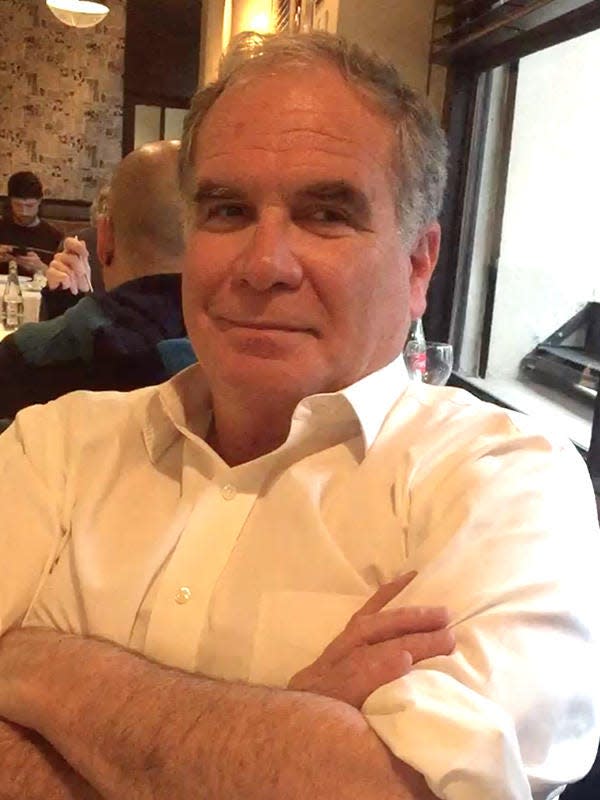Elite colleges talk a lot about equity. Why are they still overlooking low-income students?
I grew up in a housing project in Erie, Pennsylvania, after immigrating from Cuba at age 10. A Yale scholarship gave me the chance to attend an elite college. I am now a tenured professor at Princeton University.
You would think that my personal story would afford me an abiding belief in the potential of students from backgrounds like mine. But along the way, I forgot.
As if struck by a sort of academic amnesia, I succumbed to the toxic but often subconscious belief that students from underserved schools are somehow less talented and capable. In the ivory tower, it's fashionable to say we believe there is an equitable distribution of talent but a dearth of opportunity. But I question whether our actions reflect that reality.
Top 1% of wealthiest families dominate elite schools
Because nearly five decades after I first stepped onto Yale’s campus, my story is still exceptional. When economist Raj Chetty published groundbreaking research five years ago on the household incomes of students at dozens of top colleges, including Princeton and most of the Ivy League, he found more students from the top 1% than the bottom 60%.
While institutions have made progress since then, thousands of students who stand to gain the most from attending the colleges that have an outsize impact on economic mobility are still too often shut out. Many have either never heard of these schools or don’t think they belong on their campuses.
Opinions in your inbox: Get exclusive access to our columnists and the best of our columns every day
While our peers in the athletics department scour the country in search of talented point guards and linebackers, many colleges rarely search those ZIP codes to find students too often overlooked but with the potential to thrive at our institutions.
As an institution, Princeton is taking important steps to recruit students from first-generation and low-income households, from generous expansions of its ground-breaking financial aid program to initiatives like the Emma Bloomberg Center for Access and Opportunity. But there’s more to be done – and faculty have an important role to play.
Through a partnership with the nonprofit National Education Equity Lab, Princeton enabled me to join faculty from other top universities to teach my undergraduate course to high school students around the country – from a Los Angeles classroom where not a single student was born in the United States to a Manhattan school where classrooms were filled with students from the toughest neighborhoods in the city.
And guess what? A whopping 85% of them passed my course and earned actual college credit from Princeton, as well as a powerful credential for college admissions offices and employers. But when I visited these classrooms at the end of my course, I saw its most powerful impact: a transformed belief in themselves and what they were capable of achieving.
Opinion alerts: Get columns from your favorite columnists + expert analysis on top issues, delivered straight to your device through the USA TODAY app. Don't have the app? Download it for free from your app store.
My colleagues at other universities working with the National Education Equity Lab had similar experiences around the country. Educators from Stanford, Wharton, Howard, Georgetown, Wesleyan, Arizona State and Barnard have seen more than 80% of high school students enrolled in Education Equity Lab courses – in places from Flint, Michigan, the Mississippi Delta and Navajo Nation to New York, Chicago and Miami – pass actual college classes taught and graded by actual college professors.
These students aren’t beating the odds – they are revealing them.
Gen Z can decide our future. Voting in the midterms is the first step.
Trust in universities is declining
This revelation comes at a critical time for higher education. Trust and confidence in our colleges and universities are waning. A survey released this summer found that the share of U.S. adults who believe higher education has a positive impact on the country has dropped by 14 percentage points in just the past two years.
Despite significant investment in outreach and support, we have much more work to do.
Creating an equitable world: Why we issued Racial Equity 2030 challenge – our children require more than hope
Major universities are particularly on the firing line. We have, in many ways, abandoned our responsibility as proven drivers of social and economic mobility, to make a difference.
The success of National Education Equity Lab students suggests one promising path forward. The same elite colleges that are now under fire are uniquely positioned to change the narrative – by taking a more active role in developing and inspiring a generation of learners from underserved backgrounds.

I am grateful that in addition to our other investments in supporting students from historically underrepresented communities, my university and others have taken the unprecedented step of sharing their college credit-bearing courses, and faculty, beyond their gates to help propel learning and aspiration where needed most.
Restoring confidence in American higher education starts with commitments like this – particularly for institutions with the resources and endowments to do so.
To do less is to undermine the belief in higher education as a conduit, rather than a barrier, to the American dream. Shame on us if we fail to fulfill that promise.
Miguel Centeno is Musgrave Professor of Sociology and Executive Vice-Dean of the School of Public and International Affairs at Princeton University. He is founder of the Princeton University Preparatory Program, which assists in the educational development of scholars from socioeconomic groups underrepresented in major universities.
You can read diverse opinions from our Board of Contributors and other writers on the Opinion front page, on Twitter @usatodayopinion and in our daily Opinion newsletter. To respond to a column, submit a comment to letters@usatoday.com.
This article originally appeared on USA TODAY: Elite colleges talk about equity but overlook low-income students
